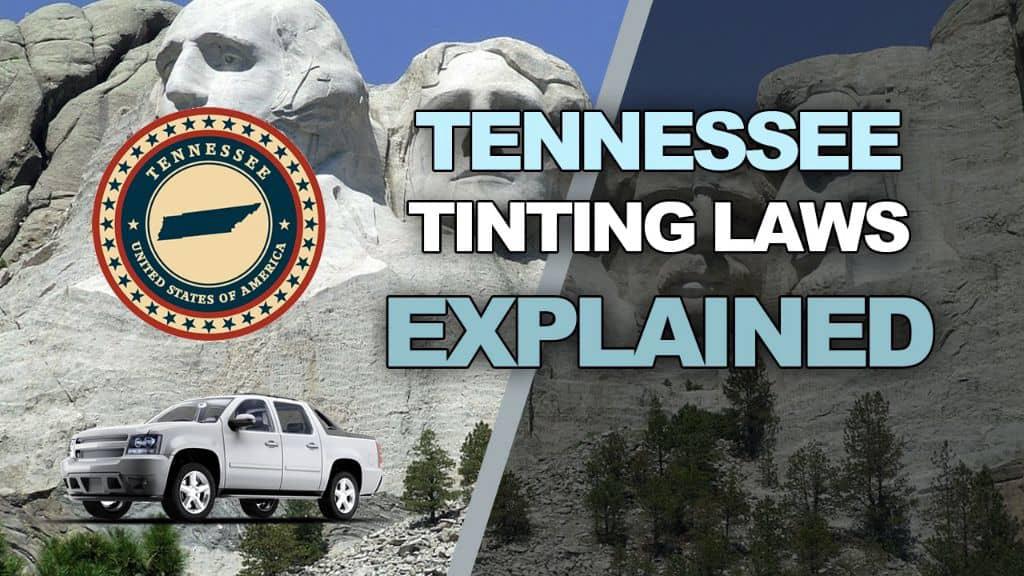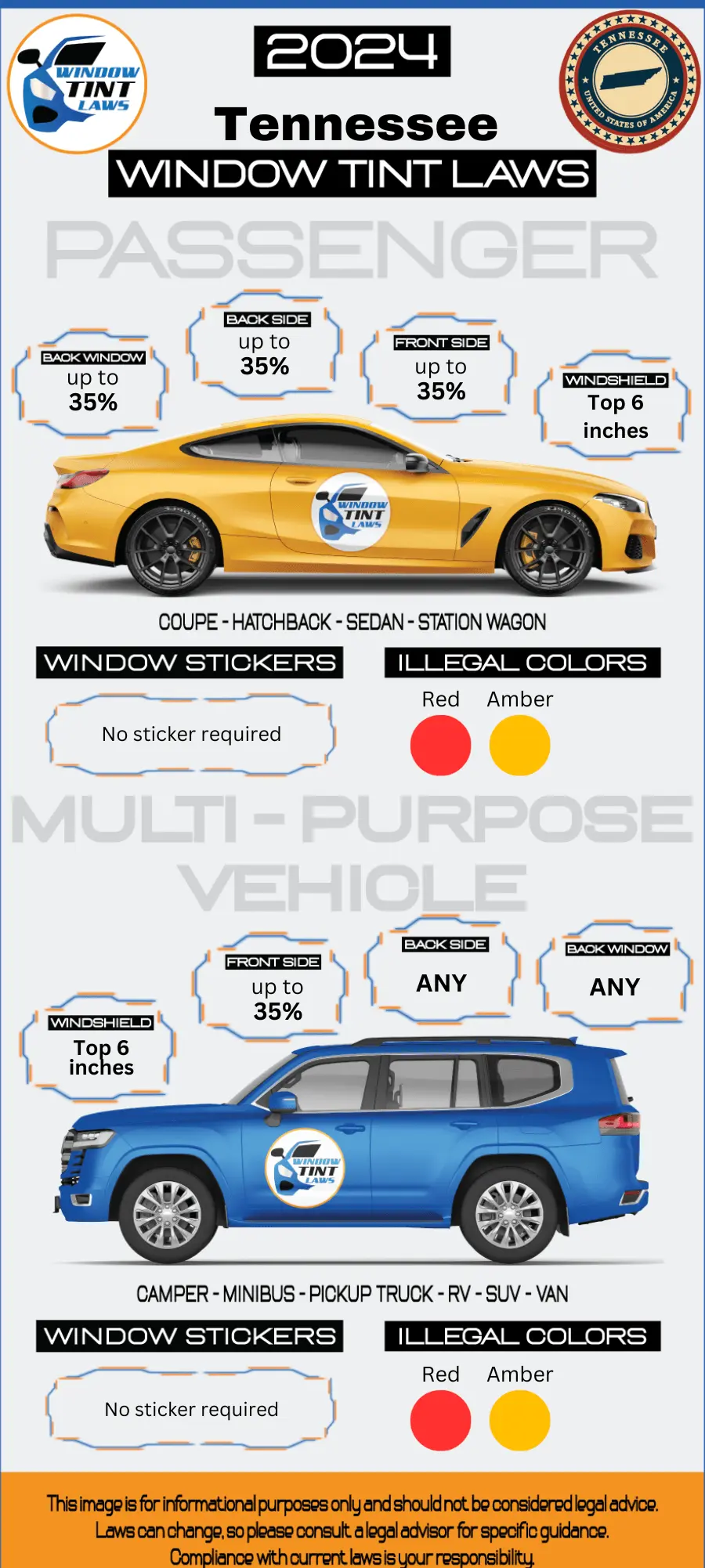

Article Created by Ryan Pietrzak
Last updated on February 14, 2024Tennessee Tint Laws – 2024 Updated Legal Tint Limit
Please note that Tennessee Tint Laws Regulation can change daily and may be interpreted differently at the city or county level. We recommend verifying this information with your local DMV or law enforcement agencies. We have manually fact-checked this content using official state resources. Tennessee enacted tinting laws in 1996. If any information provided is incorrect or outdated, please contact us so we can make the necessary corrections. Thank you.
2024 Tennessee Tint Laws – Legal Tint Limit For Passenger Vehicles
- Front Windshield: Non-reflective tint is allowed on the top 6 inches of the windshield.
- Front seat side windows: up to 35% tint darkness allowed
- Back seat side windows: up to 35% tint darkness allowed
- Rear window: up to 35% tint darkness allowed
2024 Tennessee Tint Laws – Legal Tint Limit For Multi-Purpose Vehicles
- Front Windshield: Non-reflective tint is allowed on the top 6 inches of the windshield.
- Front seat side windows: up to 35% tint darkness allowed
- Back seat side windows: Any tint darkness can be used.
- Rear window: Any tint darkness can be used.

- Medical exemptions: Tennessee tint laws permit darker tints on front side windows with a doctor’s note
- Tennessee tint laws prohibit metallic or reflective tint on any of the windows
- Tennessee tint laws are statewide with no additional local regulations
- Violating Tennessee tint laws can result in a fine of around $50 for a first offense.
What does VLT Mean according to Tennessee Tint Laws?
- Window tint film’s light transmission is measured as VLT (Visible Light Transmission) and each state has its own legal limits for VLT on car windows.
- A HIGHER VLT means that more light is allowed to pass through the window tint film.
- Example: a 75% tint will allow 75% of the light to pass through whereas a 5% tint will only allow 5% of the light to pass through, making the 5% tint a much darker film.
- Tennessee window tint laws has specific VLT limits for Passenger Vehicles and Multi-Purpose Vehicles.
FAQ’s Regarding Tennessee Tint Laws and Tennessee Legal Tint Limit
What is the darkest legal tint in Tennessee?
Window tinting laws Tennessee allow for the front side windows, back side windows, and rear window, the VLT must be 35% or higher, meaning these windows must allow at least 35% of light to pass through. For the windshield, tinting is allowed above the AS-1 line, which is a line extending parallel to the top of the windshield, but the tint must allow more than 70% of light in
Are police exempt from window tint laws in Tennessee?
In Tennessee window tinting laws police cars are subject to the same window tint laws as civilian vehicles. There are no special exemptions for law enforcement vehicles regarding window tint regulations. This ensures uniformity in the application of the tint laws across all vehicles in the state
How do I get a tint waiver in Tennessee?
To obtain a window tint exemption in Tennessee due to a medical condition, you need to complete the Tennessee Window Tint Exemption Form. This form requires an attestation from a licensed medical professional, confirming that you have a medical condition adversely affected by ultraviolet light, which necessitates the need for reduced light transmission in your vehicle’s windows. Once approved by the Department of Public Safety, the completed and approved form serves as authorization for the exemption.
How much is a tint ticket in Tennessee?
The cost of a window tint ticket in Tennessee can vary depending on factors such as the specific violation, jurisdiction, and local regulations. Generally, fines for window tint violations in Tennessee can range from around $50 to $200 or more.
Can you get pulled over for tint in Tennessee?
Yes, you can get pulled over for window tint violations in Tennessee. Tennessee has specific laws and regulations regarding the darkness of window tint on vehicles, and law enforcement officers can stop a vehicle if they believe the window tint is in violation of these laws.
How to get a Tint Exemption in Tennessee
Any person with a medical condition that is adversely affected by ultraviolet light may submit a statement to the commissioner from that person’s physician certifying that the person has a medical condition that requires reduction of light transmission in the windows of the person’s vehicle.
The commissioner shall submit the certified statement to the department’s medical review board for evaluation. If the review board finds the exemption warranted, it shall recommend that the commissioner authorize the exemption and the degree of tinting exemption that is appropriate. The commissioner shall then supply a certificate or decal, indicating the degree of exemption, to the applicant who shall display it in the motor vehicle.
For more information regarding window tint medical exemptions in _____ you can check out this resource:

Ryan Pietrzak
Creator of Windowtintlaws.us
Pennsylvania
